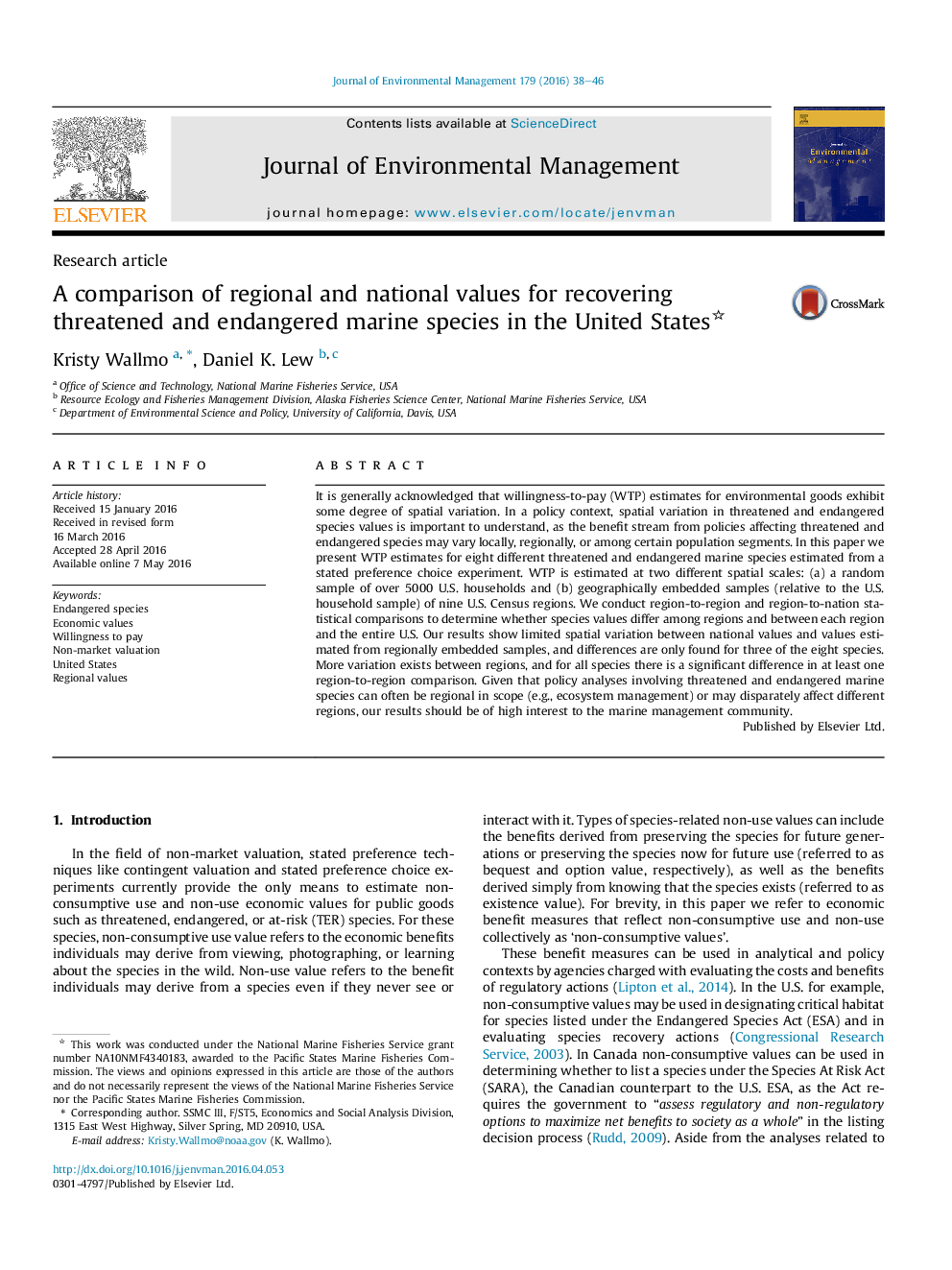| Article ID | Journal | Published Year | Pages | File Type |
|---|---|---|---|---|
| 1055345 | Journal of Environmental Management | 2016 | 9 Pages |
•Willingness-to-pay (WTP) for species recovery is derived from a choice experiment.•Spatial variation in WTP estimates exists among different regions of the US.•Certain species exhibit more spatial variation in WTP estimates than others.•Spatial variation is limited when comparing national and regional-level estimates.•Recovering endangered species provides positive economic benefits to the US public.
It is generally acknowledged that willingness-to-pay (WTP) estimates for environmental goods exhibit some degree of spatial variation. In a policy context, spatial variation in threatened and endangered species values is important to understand, as the benefit stream from policies affecting threatened and endangered species may vary locally, regionally, or among certain population segments. In this paper we present WTP estimates for eight different threatened and endangered marine species estimated from a stated preference choice experiment. WTP is estimated at two different spatial scales: (a) a random sample of over 5000 U.S. households and (b) geographically embedded samples (relative to the U.S. household sample) of nine U.S. Census regions. We conduct region-to-region and region-to-nation statistical comparisons to determine whether species values differ among regions and between each region and the entire U.S. Our results show limited spatial variation between national values and values estimated from regionally embedded samples, and differences are only found for three of the eight species. More variation exists between regions, and for all species there is a significant difference in at least one region-to-region comparison. Given that policy analyses involving threatened and endangered marine species can often be regional in scope (e.g., ecosystem management) or may disparately affect different regions, our results should be of high interest to the marine management community.
